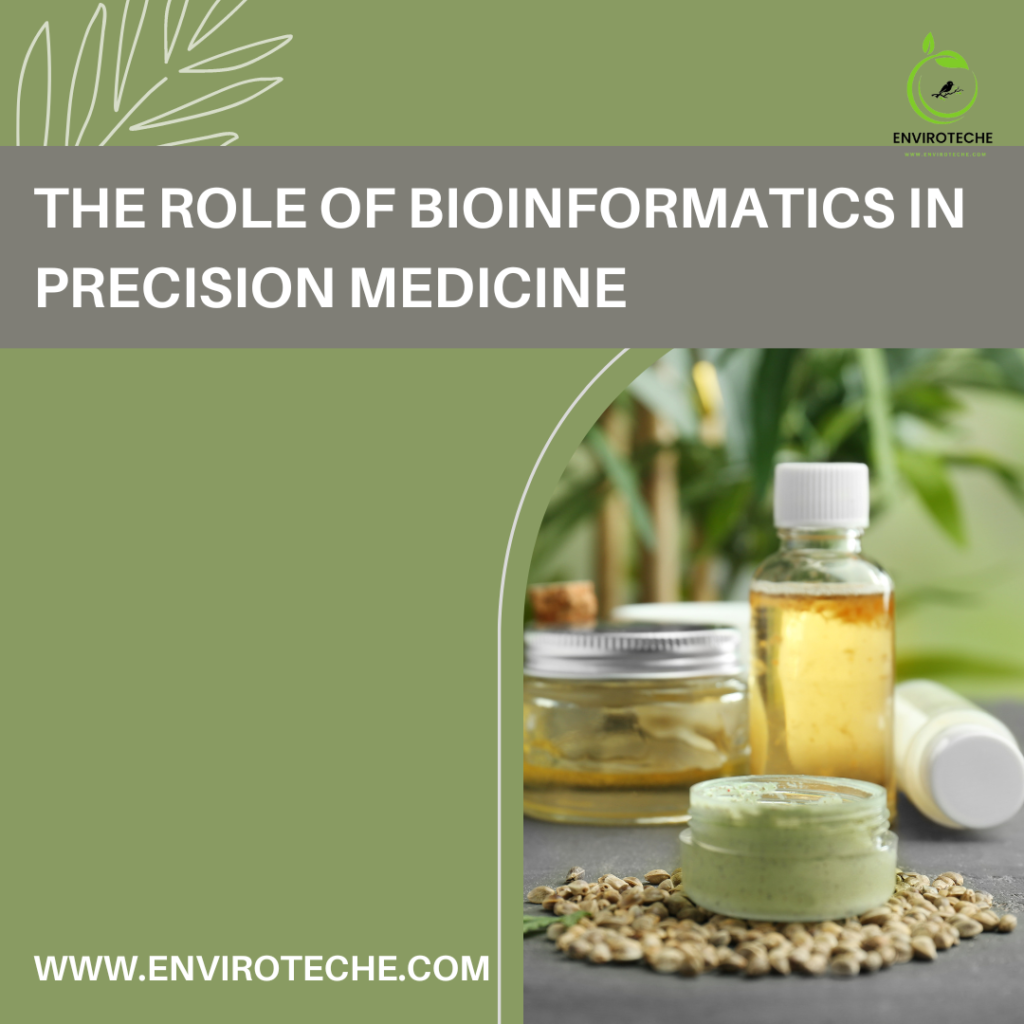
The Role of Bioinformatics in Precision Medicine
Roman Bibi1
1Department of Bioinformatics, International Islamic University Islamabad
A rapidly developing area called precision medicine tries to customize medical care for specific patients based on their distinct genetic, environmental, and lifestyle characteristics. Precision medicine is advanced by the interdisciplinary field of bioinformatics, which merges biology, computer science, and statistics. Following that, the blog explores the numerous ways that bioinformatics is used in precision medicine. It highlights how genome sequencing, transcriptomics, and epigenomes analysis combined with bioinformatics enables the discovery of disease-associated genetic variants.
Precision medicine, commonly referred to as personalized medicine, is transforming healthcare by customizing medical procedures and therapies to a person’s particular genetic makeup, environment, and lifestyle. By using targeted medicines, this strategy has the potential to enhance patient outcomes and reduce negative effects. Precision medicine is made possible by the area of bioinformatics, which merges biology, computational biology, and information technology.
The importance of bioinformatics in the field of precision medicine and its effects on patient care will be discussed in this blog.
Genomic Data Analysis:
By analyzing enormous amounts of genomic data, bioinformatics plays a crucial part in precision medicine. Massive amounts of genetic information, such as DNA sequences, gene expression patterns, and variants, are produced by high-throughput sequencing technology. These data are processed, analyzed, and interpreted using bioinformatics tools and algorithms to find genetic mutations, structural abnormalities, and other genomic alterations linked to diseases. This knowledge aids medical practitioners in developing individualized treatment plans and comprehending the underlying causes of disease.
Variant Annotation and Interpretation:
Finding genomic variations is just the first step; equally crucial is comprehending their functional implications. By comparing genetic variants with different databases and useful prediction algorithms, bioinformatics tools assist in annotating genetic variants. This annotation procedure offers insightful information on the potential effects of variants on the structure, function, and interactions of proteins. Bioinformatics aids doctors in making customized treatment decisions by assessing the importance of these polymorphisms and determining their relevance to the onset and progression of disease.
Drug Discovery and Repurposing:
The efforts to find new drugs and repurpose existing ones rely heavily on bioinformatics. Bioinformatics technologies can identify prospective targets for therapy based on specific to a disease’s genetic changes by fusing genomic and clinical data. Additionally, bioinformatics makes it possible to virtually explore sizable chemical databases for substances that could interact with the target protein or pathway. This method expedites the discovery of new therapeutic agents and the repurposing of already approved medications for new applications, resulting in more efficient and individualized treatment alternatives.
Pharmacogenomics:
Pharmacogenomics studies how a person’s genetic make-up affects how they react to drugs. Genomic data can be analyzed using bioinformatics techniques to find genetic differences that influence drug metabolism, effectiveness, and toxicity. With the use of this knowledge, professionals can choose treatments and dosages that are most likely to be efficient and secure for a given patient. Additionally, the development of decision support systems and the construction of pharmacogenomics databases with real-time suggestions for customized drug prescriptions are made possible by bioinformatics.
Data Integration and Clinical Decision Support:
Integrating many data types, such as genomic data, clinical records, and variables related to lifestyle, and environmental data, is necessary for precision medicine. The development of computational frameworks and methods to combine and analyze these various datasets relies heavily on bioinformatics. These tools help medical practitioners decide on patient evaluation, prognosis, and treatment after combining and analyzing this data. The accuracy of therapy recommendations is increased by this integration, which offers a thorough understanding of specific individuals.
Biomarker Discovery:
A patient’s health status or reaction to treatment can be inferred from biomarkers, which are quantifiable indications like genes, proteins, or metabolites. By examining diverse omics data (genomics, transcriptomics, proteomics, and metabolomics) and fusing them with clinical data, assists in the identification and confirmation of biomarkers. The use of these biomarkers for disease diagnosis, prognosis, and treatment outcome prediction enables targeted and individualized therapy.
Pharmacogenomics and Drug Design:
Pharmacogenomics is the study of how a person’s genetic makeup affects how they react to medications. Genetic variations that affect drug metabolism, effectiveness, and adverse effects are able to be found using bioinformatics. Bioinformaticians can create prediction models to direct drug selection and dose modifications for specific patients by fusing pharmacogenomics data with clinical data. Additionally, by identifying pharmacological targets based on genetic changes in certain disorders, bioinformatics aids in the formulation of targeted medicines.
Data Integration and Data Mining:
The integration and mining of heterogeneous data from numerous sources, including genomes, proteomics, electronic health records, and clinical trials, benefit greatly from bioinformatics. Bioinformaticians can find hidden links in the data, identify illness subtypes, and extract significant patterns by using advanced algorithms and artificial intelligence approaches. Our comprehension of complicated diseases is improved by the integration and analysis of many datasets, which also makes it possible to accurately classify patients and find new therapeutic targets.
Predictive Modeling and Decision Support:
Predictive models that support clinical decision-making are developed more easily thanks to bioinformatics tools and techniques. Bioinformaticians can create models to predict illness risk, treatment response, and patient outcomes by utilizing patient-specific data, such as genetic data, clinical parameters, and environmental factors. These models aid doctors in deciding on appropriate treatment plans, enhancing patient care, and enhancing the provision of healthcare as a whole.
Conclusion:
By utilizing the potential of genomic data and computer analysis, bioinformatics has emerged as a crucial area in precision medicine, revolutionizing patient treatment. Healthcare practitioners can identify personalized therapy alternatives, improve medicine selection for specific patients, and get more insight into disease causes by utilizing bioinformatics tools and methodologies. Bioinformatics will become more and more crucial in enabling precision medicine and influencing the future of healthcare as it develops.
Check Other Schlorships:



Aren’t you gonna need to supersize that? jk